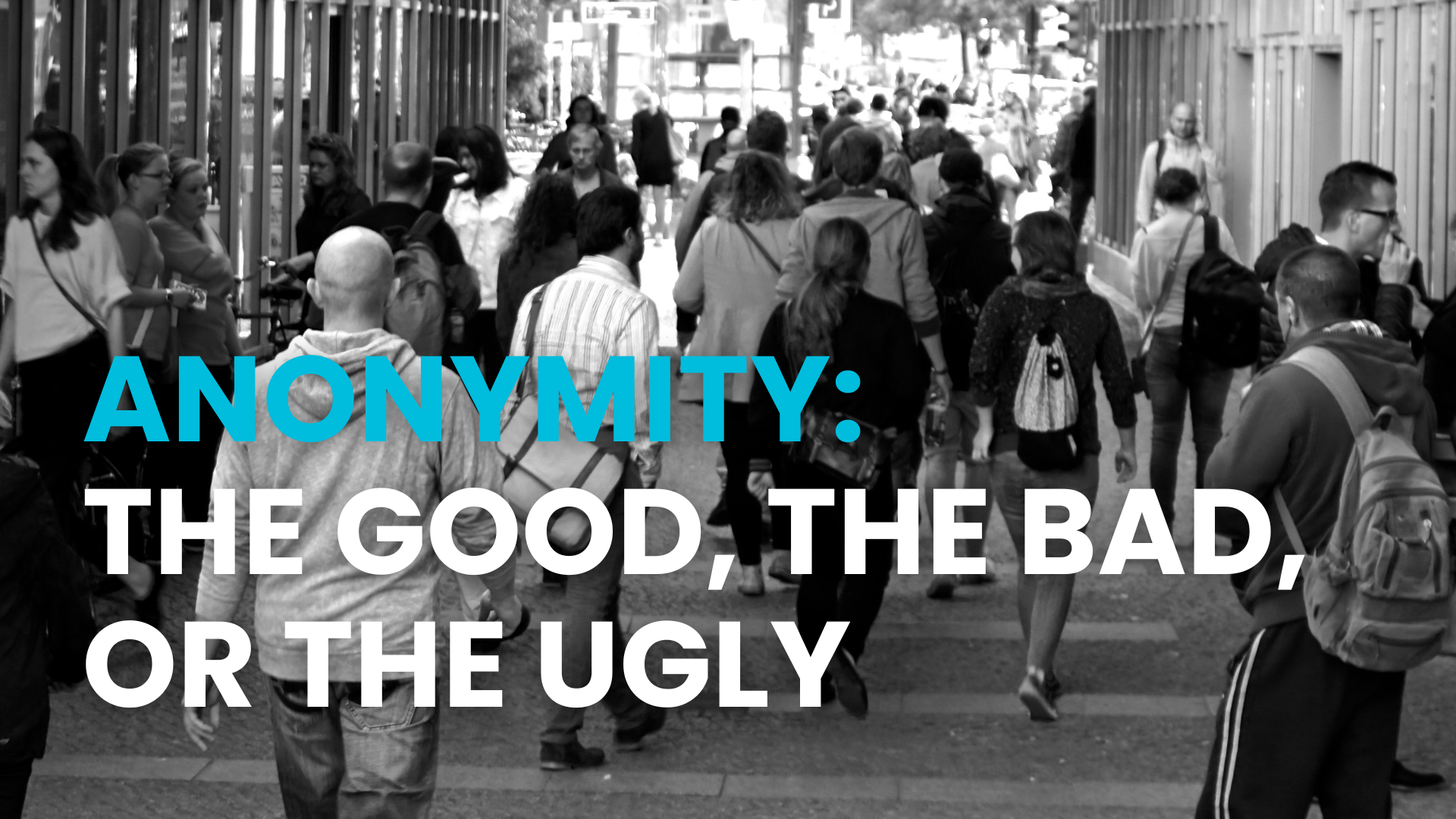Anonymity: The Good, the Bad, or the Ugly

“Anonymity is an abused privilege, abused most by people who mistake vitriol for wisdom and cynicism for wit”.
Danny Wallace
Scottish filmmaker, comedian, writer, actor
“Man is least himself when he talks in his own person. Give him a mask and he will tell you the truth”
Oscar Wilde
Irish Poet and Playwright
The value of anonymity has been debated for decades, but never more so than now, in the supercharged world of social media. As the quotes above demonstrate, there are positives and negatives to anonymously sharing your views, ideas, and actions. However, with the rise of hate speech, propaganda, and fake news on social media it has become a sociocultural phenomenon, pitting the concept of privacy and the freedom of each person with openness, transparency, and honest dialogue. So what is the Good, the Bad, the Ugly of anonymity?
Why are People Afraid of Openly Expressing Their Opinions?
There are a number of reasons that many of more comfortable remaining anonymous that are not mutually exclusive
- Fear of being judged. Humans have a desire to be liked in both everyday and professional environments. In the workplace, it is essential to fit in and live up to expectations because a person's career and financial well-being depend on it.
- Fear of losing a job. Most recognize that expressing an opinion or stance on an issue that is not in line with the company or management can put your job at risk. Some have said that the recent termination of award-winning news anchor Lisa LaFlamme from CTV was an example of taking a position on women in media needing to cover gray hair as an example of this.
- Fear of social rejection. People may fear sounding stupid or controversial if they speak up in their own voice, as it may invite the glare of too much attention in response. Instead, they choose to express their opinions anonymously, so any blowback does not impact them directly.
- Fear of loss of security. Using social networks without anonymity comes with the risk of private or law enforcement accessing personal information and invading your privacy.
Anonymity as an Inalienable Human Right
On December 7, 2021, the European Court of Human Rights (ECtHR) ruled in the case Standard Verlagsgesellschaft MBH v Austria (No. 3) which concerned whether online media are obligated to disclose the personal data of the authors of political comments under the media's materials.
In summary, the Austrian media company owns daily print and online newspapers and an Internet news portal, where the company's materials and discussion forums for discussing these materials are posted. Under the two articles, registered users left several critical comments about Austrian politicians and one of the political parties. These politicians demanded that the company disclose the personal data of the commenters and delete the comments. The company agreed to remove the words but did not disclose data about the authors, which was necessary for further proceedings against them.
The case came before national courts and then ultimately to the ECtHR, which confirmed the right to anonymity of website users if the content created by them is not illegal. It also emphasized the need to consider the qualification of content, already at the stage of analyzing whether online media should disclose data about the authors of comments. This case provides a roadmap for anonymity and its safeguards should adequately balance the interests of persons who consider their right to reputation violated and the authors of comments.
Why Is It Essential to Be Able to Remain Anonymous?
Online anonymity has been criticized, rightly so, for abusive behavior. It contributes to minimizing accountability and encourages disinhibition and depersonalization.
However, anonymity helps support the fundamental rights of privacy and freedom of expression. Voters, political dissidents, and corporate whistleblowers must communicate without repercussion or retribution, transforming anonymity into "a safeguard against political oppression." Online anonymity also protects people from violence offline, including vulnerable and marginalized populations. [1] Social network sites have become powerful platforms for pro-democracy activists and journalists who use pseudonyms to protect themselves from repressive regimes.
The rift between those who support anonymity and identity diversity and those who oppose it has existed within virtual online communities from the beginning. Turkle's study (1996) of the uses of anonymity on early computer bulletin boards, Multi-User Dungeons, and virtual communities suggests that identity diversity is helpful for play, experimentation, and raising awareness about social roles. [1]
In addition, safety from public exposure encourages people to reach out for help, advice, and consolation. The most vulnerable people are far less safe when identifiable.
A common misunderstanding is that anonymous online communication encourages people to lie, misrepresent, and deceive. However, research finds the opposite true: the Internet's relative anonymity makes people more inclined to disclose honestly [2]. Anonymity can encourage honest self-disclosure and be a liberating experience, especially for those who are socially anxious, lonely, and stigmatized. For example, many gay teenagers come out online anonymously and find acceptance, "which can give them the confidence to tell their family and peers offline". [1]
Conclusion
Anonymity as an experience presents us with a particular dilemma. On the one hand, we need a public personality to navigate society, in the family, among colleagues, friends, and peers. On the other hand, we also need a "private self" - an inner space where we are free from external influence and are left alone with our psyche. People need both options. Anonymity must be intentionally built into community spaces online and upheld by cultural norms, ethics, and regulatory practices.
The attributes of anonymity, including minimal accountability, disinhibition, and deindividuation, can encourage robust political speech, provide safety from reprisal, permit the freedom to speak freely, and create a strong sense of group identity. Anonymity encourages the full participation of all (not just the privileged), including marginalized and vulnerable populations, political dissidents, whistleblowers, and other private citizens who wish to participate without surveillance, data retention, repression, or other infringements on personal autonomy, privacy, and freedom of expression. [3]
With a more profound understanding and recognition of the ethics, human rights, and democratic dimensions of online anonymity, perhaps a new consensus can be reached about its value and necessity.
Resources
- Robert Bodle “THE ETHICS OF ONLINE ANONYMITY OR ZUCKERBERG VS. “MOOT” https://www.scribd.com/document/587803438/BodleRobert
- Whitty, M. & Gavin, J. (2001) Age/sex/location: uncovering the social cues in the development of online relationships. Cyberpsychology and Behavior 4(5), 623-630).
- Matthias C. Kettemann's International Law and the Internet https://internationallawandtheinternet.blogspot.com/2012/

